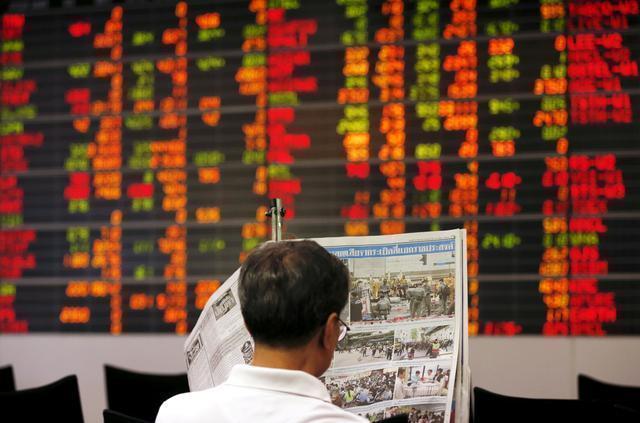Turkey’s benchmark stock index Borsa Istanbul gained 0.77% to close at a new daily and weekly record of 2.494,37 points on Friday. The BIST 100 index, which showed an upward trend last week, increased 18.96 points from Thursday’s close of 2,475.41 points, while the daily trading volume reached TRY 33.1bn.
Despite the Russia-Ukraine war, and hawkish statements by the Federal Reserve, Borsa Istanbul has positively differentiated from global markets and domestic investors are determining the direction of Borsa Istanbul, according to daily DUNYA columnist Ufuk Korcan. The BIST 100 Index has increased by 34% while the surge in the BIST 30 Index has risen to 38% since the beginning of the year.
As Korcan says, acquisitions concentrated on equities last week on Borsa Istanbul, where the daily trading volume exceeded TRY 50-60bn in recent sessions. The surge, which started in particular under the leadership of manufacturing companies, has shifted to the aviation industry, which was adversely affected by the pandemic, and the banking sector, which was hit by the uncertainty due to the government’s monetary policy.
Although the share of foreign investors in Borsa Istanbul has fallen below 38.0%, they purchased equities from major banks last week, albeit it weaker than in the past.
Korcan says domestic investors who don’t want to lose their savings against inflation due to the negative real interest rate paved the way for the upward trend on the stock exchange. Moreover, foreign and domestic investors who wanted to take positions before the 2023 elections also have a positive impact.
Analysts stated that 2,410 and 2,390 points will be the support level and 2,500 points will be the resistance level for the BIST 100 index, in technical terms.
The share of export revenues to be sold to the Central Bank has been raised from 25% to 40%, according to the Bank. The decision entered into force today. According to another decision, the Central Bank will buy 40% of foreign exchange (FX) if enterprises operating in the tourism sector sell their FX earnings.
The Ministry of Industry and Technology has kicked off the ‘Fast Charging Stations Grant Scheme for Electric Vehicles (EV)’ in order for entrepreneurs to invest in fast EV charging stations. The grant scheme, which has a budget of TRY 300m, aims to set up fast EV charging stations at 1,560 different points in the country.
President Recep Tayyip Erdogan and the UN Secretary-General Antonio Guterres held a phone call to discuss the ongoing Russia-Ukraine war and recent tensions in Jerusalem. President Erdogan tweeted that he stressed the importance of the Istanbul process for the Russia-Ukraine peace talks and efforts to settle disagreements between the parties. Regarding recent tensions in Jerusalem, Erdogan told Guterres that Ankara strongly condemns Israel’s interventions against worshipers at Al-Aqsa Mosque and finds it ‘unacceptable’. They also evaluated joint steps that can be taken to achieve peace in the region.
On the economic side, the data agenda is light this week. The residential property price index and consumer confidence index will be the most important data released. In both, we will likely see results similar to those in recent months: a rapid rise in housing prices and weak consumer confidence.
DAILY AGENDA
The net international investment position posted a USD 224.0bn deficit in February, according to the Central Bank.
The Central Bank will release the Residential Property Price Index for February (2.30 pm).
President Recep Tayyip Erdogan will chair the Central Executive Committee (MYK) meeting at AK Party headquarters (4.00 pm).
The Treasury and Finance Ministry will reissue 10-year (3,584 days) semiannually CPI-indexed government bonds.
IN OUR MAGAZINE THIS WEEK:
>> On the cover: Carlos Martins Ceglia, Ambassador of Brazil to Turkey is on our cover this week. “As agreed with Turkish authorities, the distance between countries cannot be seen as an obstacle to the growth of economic relations, but rather an opportunity for the development of complementary capacities in other regions. Our trade with Turkey in 2021 was equivalent to approximately 35% of Turkey’s entire trade flow with the [Latin American] region. It’s expressive data, but both our countries and business communities can – and must – do much better!” the Brazilian Ambassador said in an exclusive interview with TR MONITOR. You can read the details on pages 8-9.
>> Professor Ilter Turan says ‘the outcome of the French election is problematic’ on page 10.
>> Turkish people want to be in close collaboration with the EU, according to the ‘Turkish Perceptions of the European Union’ survey conducted by the U.S.-based nonpartisan public policy think tank German Marshall Fund of the United States (GMF). You read the details on page 11.
>> Our Chief Economist Gunduz Findikcioglu addresses why some nations remain poor on pages 12-13.
>> Data privacy-related issues arising from the use of blockchain technology. You can read the details in our ‘Business by Law’ section on page 14.










